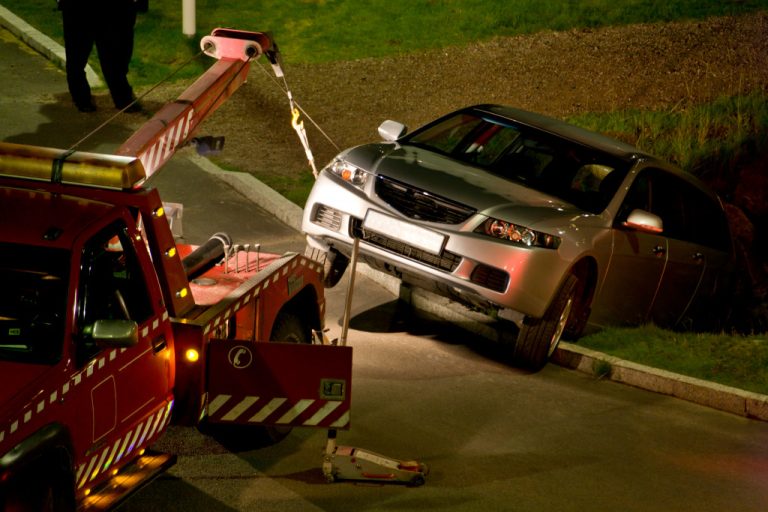- Maintain a safe home environment to reduce the risk of harm.
- Teach and practice fire safety, such as installing smoke detectors and practicing fire drills.
- Practice safe habits in the kitchen, such as keeping sharp objects out of reach and turning pot handles inward.
- Ensure proper car accident prevention with regular vehicle maintenance, remaining aware of your surroundings while driving and avoiding distracted driving.
- Promote open communication and education to empower family members to make safe choices.
Ensuring your family’s safety is a top priority, and taking proactive measures to prevent accidents is essential for their well-being. Accidents can happen in various aspects of daily life, but by being vigilant and implementing preventive measures, you can significantly reduce the risk of harm to your loved ones. This guide will provide five valuable tips to prevent accidents within your family, keeping everyone safe and secure.
1. Maintain a Safe Home Environment
Creating a safe home environment is crucial for accident prevention. Conduct a thorough home assessment to identify potential hazards and address them accordingly. Secure loose rugs and cords to prevent tripping, install safety gates at the top and bottom of stairs to protect young children, and place non-slip mats in the bathroom to prevent slips and falls.
Keep toxic substances, sharp objects, and medications out of reach or securely locked away. Install smoke detectors and carbon monoxide alarms on every level of your home, and regularly check their functionality. By maintaining a safe home environment, you create a foundation for accident prevention and ensure the well-being of your family.
2. Teach and Practice Fire Safety

Fire safety is a critical aspect of accident prevention. Educate your family members about the importance of fire safety and establish clear guidelines and procedures to follow in case of a fire. Teach them how to properly use and maintain fire extinguishers and educate them about the dangers of playing with matches or lighters.
Install smoke detectors in key areas of your home and test them regularly to ensure they are functioning correctly. Create a fire escape plan that includes multiple exits and designate a meeting point outside the home. Regularly practice fire drills with your family to familiarize everyone with the procedures and ensure a quick and safe evacuation in an emergency.
3. Practice Safe Habits in the Kitchen
The kitchen is a common area where accidents can occur, but by practicing safe habits, you can minimize the risk. Keep sharp objects such as knives and scissors out of reach of young children and store them in secure locations. Use stove guards to prevent accidental burns, and never leave cooking unattended.
Turn pot handles inward to avoid accidental spills, and use oven mitts or potholders when handling hot cookware. Teach your children about the dangers of hot surfaces and appliances and establish clear rules for kitchen safety. By practicing safe habits in the kitchen, you create a safer environment for meal preparation and reduce the risk of accidents.
4. Ensure Proper Car Accident Prevention
Car accidents are a significant concern for families, but there are preventive measures you can take to ensure their safety on the road. By prioritizing car accident prevention, you protect your family while traveling and reduce the risk of serious injuries.
Here are some tips to prevent car accidents:
Check Your Windshield for Cracks
Ensure your windshield is in good condition by regularly inspecting it for damage. If there’s a repair needed, investing in professional auto glass to fix the problem can give your family peace of mind on the road. Professionals will use the latest materials and techniques to repair cracks, chips, and other damages quickly and safely. They will also ensure there is no further damage and that you won’t have to deal with a more expensive replacement later.
Maintain Your Vehicle

Regular vehicle maintenance is essential for keeping your car in optimal condition and avoiding potential accidents on the road. Check all fluid levels, brakes, lights, tires, and mirrors before each journey and be aware of any warning lights that appear on your dashboard. Have regular oil changes done so your engine runs efficiently throughout its lifetime.
Be Aware of Your Surroundings
Always be aware of your surroundings and keep safe from other vehicles. Use your mirrors regularly to check for blind spots, and pay attention to your area’s speed limits and traffic laws. Reduce distractions while driving, such as talking on the phone or listening to loud music, so you can stay alert and focused on the road.
Avoid Distracted Driving
Distracted driving is one of the leading causes of car accidents. Refrain from texting, eating, or applying makeup while behind the wheel, as these activities take away your focus from the road. Download a hands-free device for making calls while you drive, and never use your phone while the car is in motion.
5. Promote Open Communication and Education
Open communication and education are key components of accident prevention within your family. Create a safe and non-judgmental environment where family members feel comfortable discussing safety concerns or reporting potential hazards. Encourage open dialogue about accident prevention, and regularly discuss safety topics with your children, such as pedestrian safety, water safety, or bike helmet use.
Teach them about the risks associated with certain activities and the importance of following safety guidelines. Stay updated on safety information and guidelines from reputable sources, and share this knowledge with your family. By promoting open communication and education, you empower your family members to be proactive and make safe choices in their daily lives.
Final Words
Preventing accidents within your family requires awareness, education, and proactive measures. By maintaining a safe home environment, practicing fire safety, promoting safe habits in the kitchen, ensuring proper car accident prevention, and fostering open communication and education, you significantly reduce the risk of accidents and create a safer environment for your loved ones. Remember, accidents can happen, but by implementing preventive measures, you can minimize the likelihood of harm and prioritize the well-being of your family.











